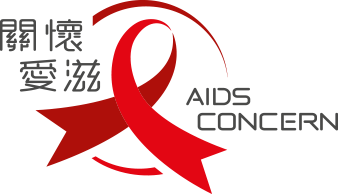Human Immunodeficiency Virus (“HIV”) destroys people’s immune system, making the infected vulnerable to virus and bacteria, and eventually, leads to “Acquired Immune Deficiency Syndrome,” or AIDS.
HIV is incapable of causing direct symptoms, but once the virus enters the body through blood vessels, they will begin to attack the “T4 Lymphocytes” (white blood cells and macrophages) that reside within the immune system, weakening the immune system’s ability to self-repair. Meanwhile, some harmless diseases such as tuberculosis, pneumocystis carinii pneumonia (PCP) and fungal infections, which normally do not affect healthy person, begin their infection and thus turn the HIV positive individual into an AIDS patient.
Latency of HIV can last for several years until it destroys one’s immune system. Symptoms of HIV in the early stages include diarrhea, regular coughing, night sweats, fatigue, weight loss and swollen lymph nodes, or sometimes no symptoms. A person living with HIV may not have any initial symptoms and they cannot be identified by any external features. The most accurate way is to perform an HIV screening test. In the later stage of the HIV infection, many other aspects of the infected person’s body, including the skin, lungs, eyes, internal organs and brain, will be susceptible to other infections.
AIDS is not hereditary but develops after birth from contact with the HIV virus, for example through breastfeeding. During vaginal births, babies may come into contact with HIV in their mother’s blood and other fluids. Caesarean delivery reduces the risk of passing on the virus if the mother has a high viral load. It is also recommended that the baby takes treatment in the first six weeks in order to have extra protection against infection. Women planning a pregnancy are advised to have HIV testing and take treatment as soon as possible.

